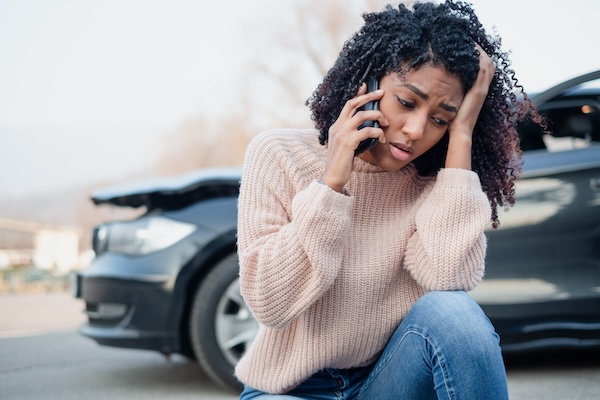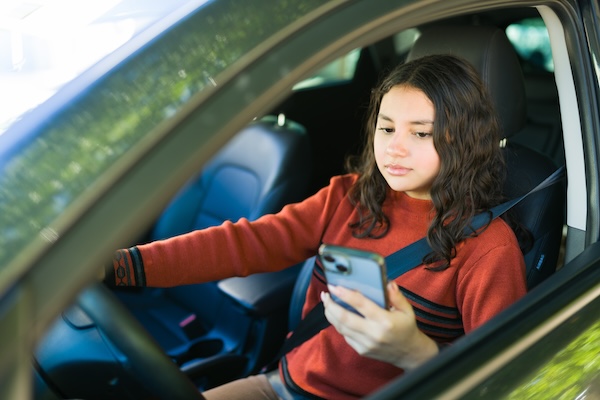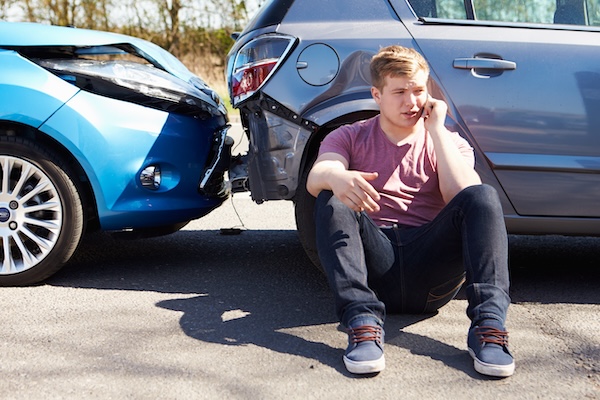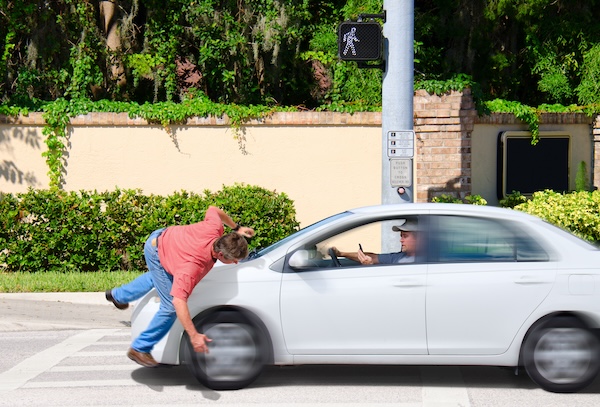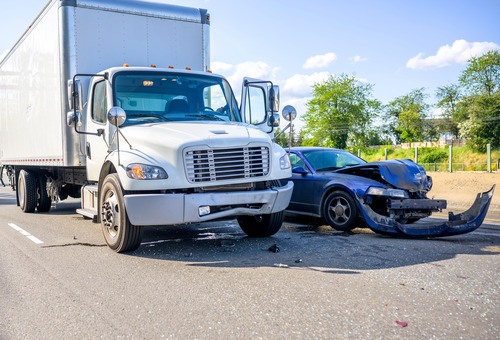When it comes to teen driver car accidents in Georgia, the statistics are both alarming and eye-opening. As a parent, it’s crucial to understand the risks, responsibilities, and preventive strategies associated with teen driver car accidents. Teen driver car accidents are disproportionately common, and teen drivers are frequently involved in car accidents. In Georgia, this issue continues to be a serious concern. Understanding how these accidents occur, what legal implications are involved, and how to better protect your teenage children can help minimize the chances of such an incident.
Why Teen Driver Car Accidents Are So Common
Teen driver car accidents remain prevalent due to a range of contributing factors. Inexperience, distracted driving, and reckless behavior play key roles. The thrill seeking nature of many teens, coupled with a lack of adequate driving experience, leads to risky decisions behind the wheel. Statistics from the Georgia Department of Public Health indicate that fatal crashes involving young drivers peak between Memorial Day and Labor Day, a period often referred to as the “100 Deadliest Days” for teen drivers.
Contributing Factors to Teen Car Accidents
- Distracted Driving: One of the primary causes of teen driver car accidents and a leading risk factor for teen car accidents.Cell phone use, texting, and interactions with family members or other drivers can lead to a lack of attention.
- Nighttime Driving: Many teenage drivers are inexperienced with low-visibility conditions, making nighttime driving especially risky.
- Speeding: Teens often ignore speed limits, increasing the severity of accidents when they occur.
- Reckless Behavior: From tailgating to ignoring traffic rules, risky behaviors are common among teen drivers.
- Driving with Passengers: Having peers in the car can encourage reckless behavior and increase distractions.
Georgia Laws Governing Teen Driving
Understanding the legal aspects of teen driver car accidents in Georgia is essential for both parents and teenagers. Georgia has implemented several laws to curb teen driver car accidents and reduce overall crashes involving young drivers:
- Joshua’s Law: Requires teens to complete an approved driver education course and supervised driving hours.
- Adult Driver Responsibility Act: Establishes stricter penalties for violations by teen drivers.
- Intermediate License: Imposes certain restrictions on newly licensed teenage drivers, such as limited nighttime driving and passenger restrictions.
These laws aim to encourage safe driving habits and reduce fatal accidents among this vulnerable age group.
The Role of Parents in Preventing Teen Driving Accidents
Parents play a pivotal role in shaping their teen’s driving behavior. Setting expectations, modeling good habits, and openly discussing teen driver car accidents can drastically reduce your teen’s risk. Consider the following:
- Discuss the dangers of distracted driving, especially cell phone use.
- Supervise your teen’s driving through the learner’s permit and intermediate license phases.
- Reinforce the importance of obeying speed limits and other traffic laws.
- Limit the number of passengers your teen is allowed to drive.
- Encourage open dialogue about accidents, driving challenges, and how to handle emergencies.
Legal and Financial Consequences for Parents
Many parents are unaware that they could be held liable under the family purpose doctrine or through vicarious liability if their teen driver causes a car accident. Georgia law considers whether the vehicle was provided for the family members’ general use when assigning liability. If your teen is involved in a car accident caused by negligent driving, If your child is involved in one of the many teen driver car accidents in Georgia, you may face significant legal and financial consequences such as:
- Medical expenses
- Property damage
- Legal fees
- Increased insurance premiums
Having an experienced car accident attorney can help navigate the complexities of liability and protect your rights.
What to Do If Your Teen Is Involved in a Car Accident
If your teen driver is involved in a car accident, immediate steps should include:
- Ensure their safety and that of others.
- Call emergency services if necessary.
- Exchange insurance and contact details with other drivers.
- Document the scene with photos and notes.
- Notify your insurance provider.
- Following teen driver car accidents, it’s critical to contact a reputable car accident attorney to evaluate liability and protect your rights.
Legal advice is crucial in determining fault and protecting your family’s financial interests. A skilled car accident lawyer can investigate the accident, represent your interests, and help secure fair compensation.
Common Injuries and Long-Term Impacts
Teen driver car accidents can result in a range of injuries, from minor scrapes to catastrophic outcomes like brain trauma or spinal damage. Many fatal crashes involving teen drivers have long-term impacts on the victims’ families. Emotional distress, medical bills, and permanent disabilities are just a few of the consequences that underscore the need for safe driving habits and preventative measures.
How to Raise Awareness and Promote Safer Teen Driving
Education and awareness are essential to preventing teen driver car accidents, which remain a leading cause of death among teens. When parents, schools, and community organizations collaborate, they can foster safer driving behaviors and save lives. Here’s how you can get involved and make a real impact:
Hosting Driver Safety Seminars
Local schools and community centers can host educational seminars that focus on the dangers of distracted driving, the importance of supervised driving, and the specific risks that teenage drivers face. Law enforcement officers, traffic safety experts, and experienced car accident attorneys can present real-life case studies, crash statistics, and legal consequences to help teens understand the gravity of unsafe driving.
Participating in Georgia Department Initiatives
The Georgia Department of Driver Services and the Governor’s Office of Highway Safety offer teen-focused programs such as “Parents Are the Key” and “Teens Ride with P.R.I.D.E.” These initiatives include free classes, instructional materials, and online tools that support safe and legal driving habits. Parents can enroll their teens and themselves in these state-backed efforts to reinforce accountability and reduce car accidents in Georgia.
Encouraging Defensive Driving Courses
Defensive driving programs teach young drivers how to anticipate and respond to potential hazards, minimize risks, and stay calm in high-stress situations. These courses often qualify teens for insurance discounts and may even be mandated following certain violations. Programs like those offered by AAA or certified schools can drastically reduce the likelihood of teen car accidents.
Sharing Stories of Fatal Accidents to Highlight the Risks
Personal stories have a powerful emotional impact. Parents, educators, and public safety officials can use testimonials and videos from real-life fatal accidents to illustrate the devastating consequences of reckless behavior, speeding, and cell phone use behind the wheel. These narratives are particularly effective when integrated into school health classes or driver’s ed curricula.
Using Apps or Tools to Monitor Driving Behavior
Technology offers new ways to enforce safe driving habits. Apps like Life360, Bouncie, and Hum by Verizon allow parents to track location, speed, sudden stops, and cell phone usage in real-time. These tools can be used to promote responsible driving while also offering opportunities for constructive feedback and improvement. Some insurance companies also provide telematics devices that encourage teen drivers to maintain good habits.
Programs backed by the Centers for Disease Control and Prevention (CDC), such as the Graduated Driver Licensing (GDL) system, have proven effective in lowering teen driver car accident rates. These programs require teens to gain experience under lower-risk conditions and include certain restrictions like limits on nighttime driving and peer passengers. By delaying full driving privileges and gradually increasing responsibility, GDL programs protect teen drivers during their most vulnerable learning stages.
Together, these efforts can raise awareness, shift driving behavior, and empower both parents and teens to make choices that prevent tragedy on Georgia’s roads.
Protecting Your Teen and Others on the Road
While it’s impossible to eliminate all risks, understanding the causes and legal implications of teen driver car accidents allows parents to take proactive steps. Encourage safe driving habits, limit risky behaviors, and ensure your teen is prepared for the responsibilities of driving. In the unfortunate event of such an incident, don’t hesitate to consult with an experienced car accident attorney to understand your options.
Taking a comprehensive approach—combining legal knowledge, safety education, and open communication—can reduce the chances of your teen driver being involved in one of the many car accidents in Georgia.
For more information or to schedule a free consultation, reach out to Buddoo and Associates today. 404-870-3557 Your family’s safety and financial well-being could depend on it.
